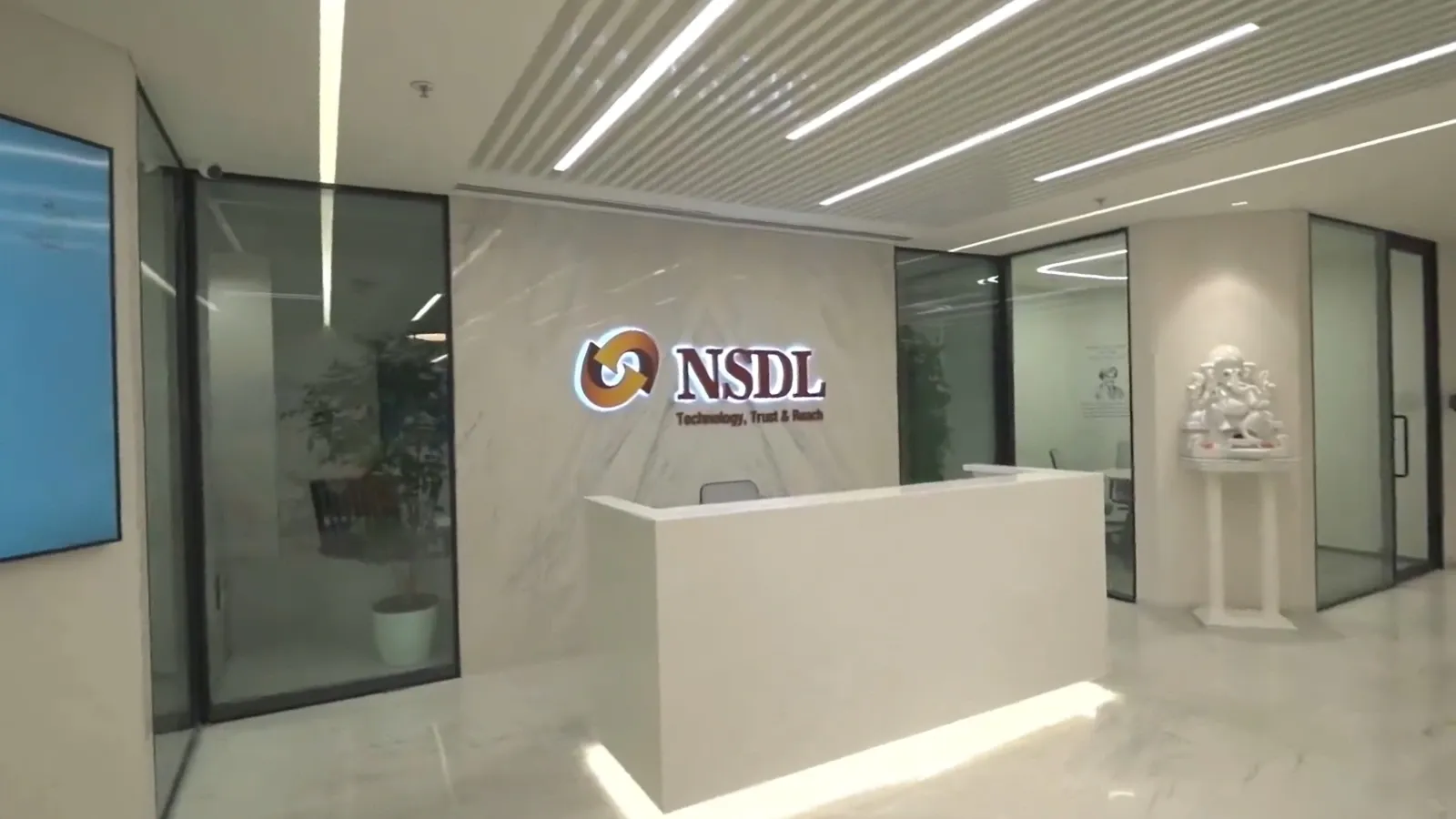Market News
NSDL IPO listing: Shares debut at 10% premium on BSE; here's how much investors made

3 min read | Updated on August 06, 2025, 10:12 IST
SUMMARY
NSDL IPO listing: NSDL shares opened at a 10% premium at ₹880 apiece on the BSE. The initial public offering of NSDL was a complete offer for sale worth ₹4,011.6 crore. Net proceeds from this IPO will go to selling shareholders, and the company will not receive any proceeds.

NSDL IPO made a decent stock market debut today on the Bombay Stock Exchange (BSE). | Image: Shutterstock
NSDL share price: Shares of National Securities Depository Ltd (NSDL), which offers depository services to retail and institutional clients, made a decent debut on the Bombay Stock Exchange (BSE) on Wednesday, August 6.
NSDL stock started trading at ₹880 apiece on the BSE, reflecting a premium of 10% over the issue price of ₹800 per share. The stock will only list on BSE, as the National Stock Exchange (NSE) is one of the promoters of the company.
As many as 1.31 crore shares of NSDL changed hands on the BSE in the first five minutes of market debut. NSDL total market capitalisation stood at ₹18,182 crore as of 10:05 am.
How much investors made after the NSDL IPO listing
The minimum bidding quantity for investors applying for the NSDL IPO was 18 shares. Retail investors who were allotted shares during the NSDL IPO allotment would have made a profit of at least ₹1,440 per lot (₹80 x 18) as soon as the stock started trading on the exchange.
The minimum lot size to apply for the issue for Small Non-Institutional Investors (sNIIs) was fixed at 14 lots or 252 shares. Successful sNIIs who were allotted shares against their bids would have earned a profit of at least ₹20,160 (₹80 x 252). Likewise, Big Non-Institutional Investors (bNIIs) would have earned a minimum profit of ₹100,800 (₹ 80 × 1260).
NSDL IPO bidding was led by qualified institutional buyers, or QIBs, who subscribed their portion nearly 104 times, while the quota for non-institutional investors, or NIIs, got 34.9 times the subscription. The retail investors' part attracted 7.7 times the subscription.
| Category | Reserved | No of Shares Bid For | No of Times |
|---|---|---|---|
| Qualified Institutional Buyers | 1,00,12,000 | 1,04,09,16,654 | 103.9 |
| Non-Institutional Investors | 75,09,001 | 26,26,54,614 | 34.9 |
| Retail Investors | 1,75,21,001 | 13,59,55,530 | 7.7 |
| Employees | 85,000 | 13,07,970 | 15.3 |
| Total | 20,109,003 | 1,425,816,769 | 40.02 |
NSDL IPO objective
The IPO was a complete offer-for-sale worth ₹4,011.6 crore. The company will not receive any proceeds from the offer for sale. The proceeds will be received by the selling shareholders, net of offer-related expenses and taxes.
About the company
National Securities Depository Limited (NSDL) is a SEBI-registered market infrastructure institution that provides depository services through "Demat Accounts" held by investors through depository participants, covering various asset classes including equities, preference shares, warrants, funds, debt instruments, and electronic gold receipts. It operates a centralised digital bookkeeping system that facilitates security holders holding and transferring their securities in electronic form, enabling efficient and cost-effective settlement solutions.
The company operates as the largest depository in India in terms of the number of issuers, number of active instruments, market share in demat value of settlement volume, and value of assets held under custody as of March 31, 2025. The main depository services bring in regular income mainly from yearly custody fees paid by security issuers and yearly maintenance fees paid by depository participants for managing corporate accounts on their platform.
About The Author
Next Story

